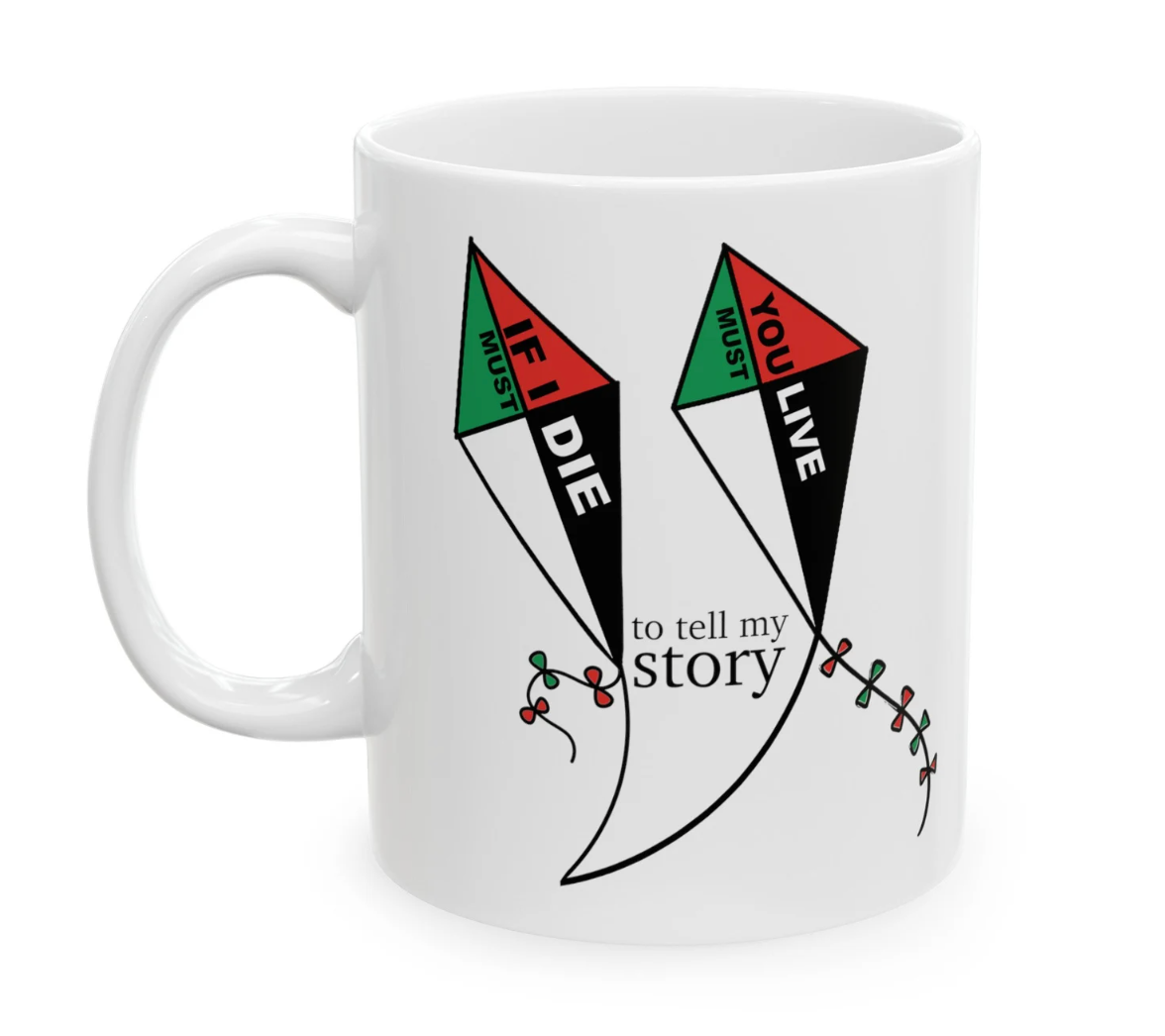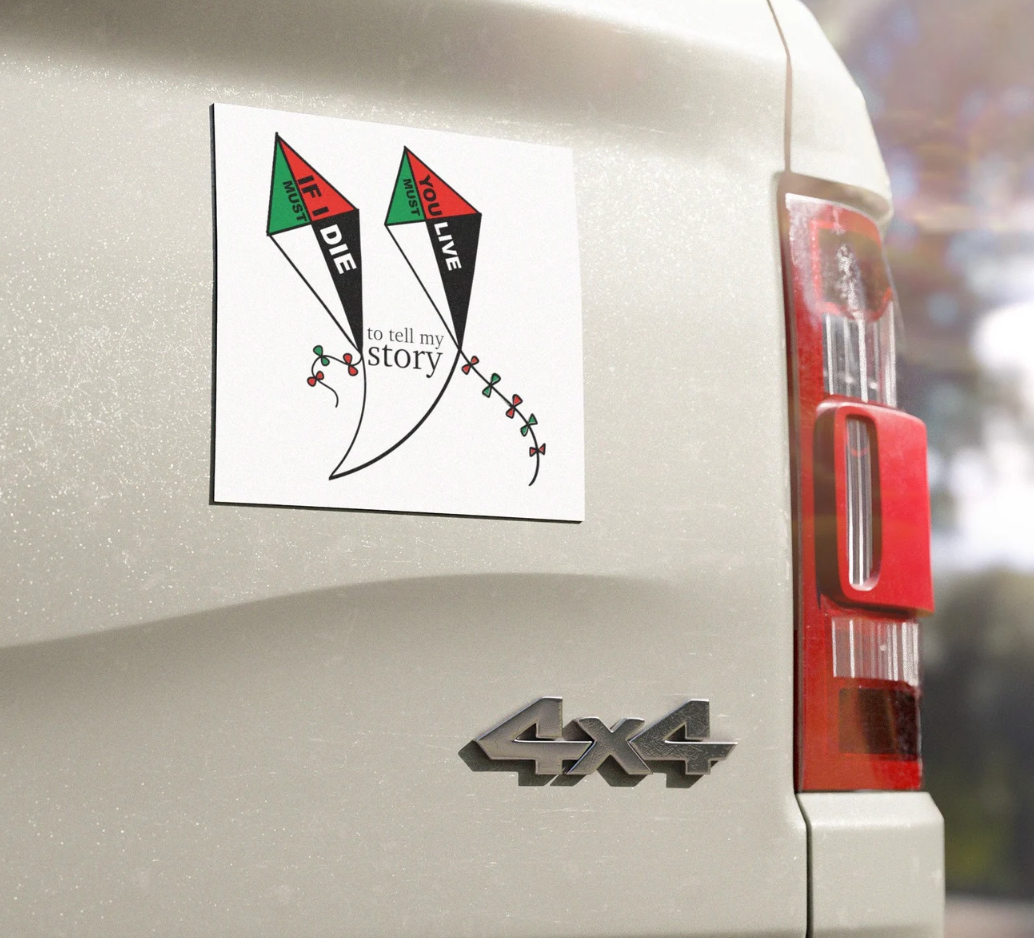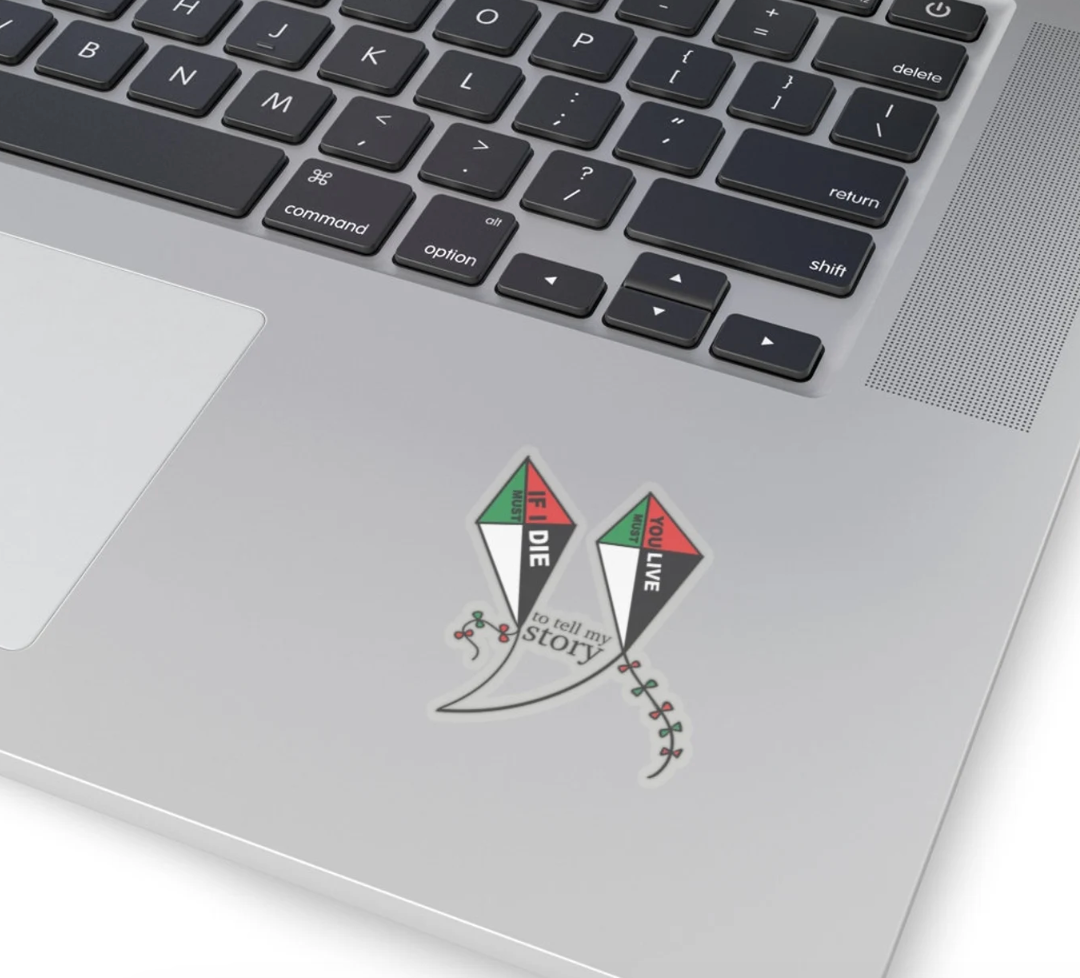Title: They Killed the Storytellers
Description:
This piece shows a bulletproof vest standing in a field of white roses, a press pass set on fire, with flames slowly rising to consume the flowers from below. The contrast of purity and destruction symbolizes the silencing of journalists and the cost of truth-telling in war. The vest is both absence and presence, a body missing yet a voice eternal, while the burning roses mourn the loss of innocence, honor, and lives devoted to bearing witness.
Assignment: Create a poster addressing a social issue through powerful visuals.
I chose to highlight the weight of 1.7 million Palestinians displaced since 2014. I was initially hesitant about focusing on Palestine due to guidance to avoid anything ‘political’ or ‘conflict-related’—but this is neither. It’s a fact, a reality of the ongoing displacement and suffering imposed by the Israeli government for decades. Standing with Palestine is not a stance of conflict; it’s a stance of humanity.
I chose to highlight the weight of 1.7 million Palestinians displaced since 2014. I was initially hesitant about focusing on Palestine due to guidance to avoid anything ‘political’ or ‘conflict-related’—but this is neither. It’s a fact, a reality of the ongoing displacement and suffering imposed by the Israeli government for decades. Standing with Palestine is not a stance of conflict; it’s a stance of humanity.
Title: Draped in Resistance
Description:
The illustration portrays a Palestinian woman in hijab, her garment flowing seamlessly into the colors of the Palestinian flag. With her gaze turned to the side, she embodies strength, resilience, and the deep connection between identity and homeland. The piece reflects both personal dignity and the collective struggle of her people.
The Nakba: A Map of Displacement and Destruction
During the first Nakba, Zionist militias carried out coordinated attacks across Palestine. Entire villages were destroyed. Civilians were massacred, raped, or forced to flee. Over 750,000 Palestinians were displaced, many never allowed to return.
This map traces just a few of the towns and villages where Palestinians were violently uprooted, including:
Haifa (December 1947)
Safed (May 1948)
Safsaf (October 1948)
Each arrow marks the loss of a homeland, a community, a life interrupted.
Haifa (December 1947)
Safed (May 1948)
Safsaf (October 1948)
Each arrow marks the loss of a homeland, a community, a life interrupted.
The Nakba was not a single event. It is an ongoing process of erasure and resistance.
Title: We Exist. We Resist.
Description: This poster centers Palestinian identity and collective resistance through symbolic cultural elements. The keffiyeh pattern, traditional Tatreez embroidery, olive branch, and the key of return are woven into a bold visual that asserts presence, memory, and defiance. Designed to evoke both heritage and urgency, this piece is part of a broader visual narrative confronting erasure and uplifting Palestinian resilience.
Typographic Poem of If I Must Die You Must Live by Dr.Refaat Alareer



If I Must Die You Must Live mug, car magnet, and sticker Available for purchase on my Etsy store
